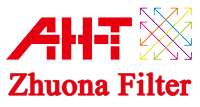1. is there a fixed standard part for the sintered filter element? Can I buy standard filter element?
A: sorry, the sintered filter element is not a standard part. Usually, it is produced by the manufacturer according to a series of detailed values such as the size, shape, material and filter value specified by the customer.
2. What materials can be selected for sintering filter element?
A: bronze, brass, stainless steel, titanium and various alloys are common. It is common that bronze is used in sintering filter element industry, and alloy metal is the lower cost. The reason why customers need to choose other metal types or alloys may be due to different service environments, such as higher hardness, better corrosion resistance, or higher temperature. Stainless steel is also a kind of material used more, because of its heat resistance and corrosion resistance are very good. For more complex environments, nickel alloys may be needed. Of course, the cost of these alloys is relatively high and difficult to process, so the price will be higher
3. What should be paid attention to in the design of metal sintering filter element
Answer: when selecting the filter element, we need to consider the filter medium, filtration value, flow rate through the filter, use environment, etc. Different uses require different filters. In design, you need to consider the following points:
1) Pore size: also in micron scale. Pore size defines the size of the media you need to filter
2) Pressure drop: refers to the liquid or gas flow through the filter pressure loss. You must determine your usage environment and provide it to the filter manufacturer.
3) Temperature range: how high is the working environment temperature of the filter element in its operation? The metal alloy you choose for the filter element must be able to withstand the temperature of the working environment.
4) Strength: sintered filter elements are the best choice for high strength. Another advantage is that they have the same strength in forward or reverse flow.
4. What information do I need to provide to the manufacturer to place an order?
1) Application: including using environment, filtering value, etc
2) Filter media
3) What should be paid attention to, such as acid and alkali resistance
4) Are there any special operating conditions, such as temperature and pressure
5) What pollutants will be encountered
6) Dimension, shape and tolerance
7) Quantity required
8) How to install
Post time: Dec-02-2020




